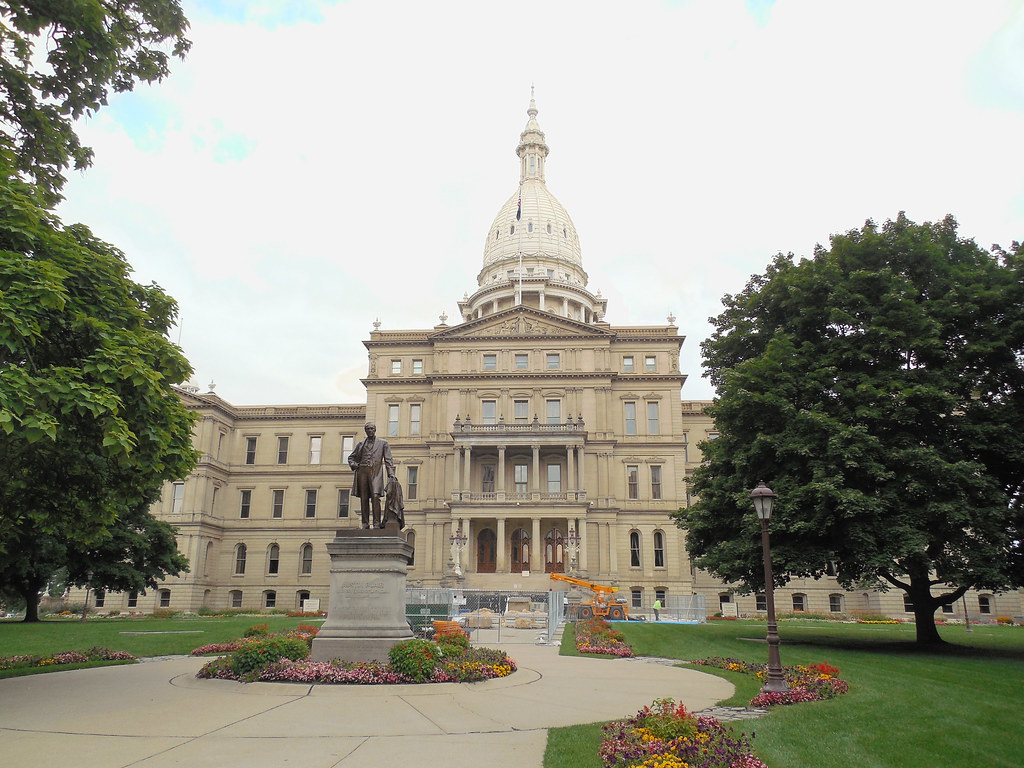Michigan Appropriates $75 Million to Expand Critical Statewide Blight Elimination Program
January 31, 2023

Michigan Association of Land Banks and the Center for Community Progress celebrate this important commitment to revitalizing disinvested communities across the state.
LANSING, MI – On January 26, 2023, the Michigan legislature passed S.B. 7, which was signed by the Governor today and goes into immediate effect as P.A. 1 of 2023. S.B. 7 included an essential appropriation of $75 million in American Rescue Plan Act (ARPA) funds to expand the State’s Blight Elimination Program. The bill also expanded eligibility for the Missing Middle Housing Program, now allowing land banks to apply for $50 million towards the construction or rehabilitation of “missing middle” housing. These one-time appropriations are a part of a supplemental spending bill totaling $1.1 billion.
The Michigan Association of Land Banks (MALB) and the Center for Community Progress—the only national nonprofit dedicated to tackling vacant properties—applaud this critical expansion of the State’s Blight Elimination Program, established in 2022 through H.B. 5783 and administered through the State Land Bank Authority. S.B. 7 enhances the blight elimination program—which provides funding to secure or demolish vacant residential, commercial, or industrial buildings and remediate environmental contamination on vacant land—by:
- Expanding eligible uses to include rehabilitation of vacant residential, commercial, or industrial structures
- Providing every land bank in the state with at least $500,000 and $2.5 million for the state’s ten largest land banks
- Providing an additional pool of $30.5 million to be competitively awarded to land banks, counties, or municipalities for work to stabilize or improve vacant properties
- Providing funding for acquisition of blighted structures to be rehabilitated, stabilized or demolished
“Land banks are a vital tool to address vacant and deteriorated properties more expediently. This additional $75 million in funding will significantly strengthen the capacity of the forty-eight land banks across the state to address vacant properties,” said Tim Burgess, chair of the MALB and director of the Muskegon County Land Bank. The bill also expands funding and eligibility for the Missing Middle Housing Program administered by the Michigan State Housing Development Authority. Recognizing how land banks are a vital partner to communities facing a broad range of housing and vacancy challenges, the bill allows land banks to apply for this new $50 million appropriation to fund the rehabilitation or construction of attainably priced housing.
Land banks have long been a vehicle for supporting a range of community and economic development activities. “It’s exciting to see the state legislature recognize the power of land banks to work with all types of properties, and need for funding to support that work,” said Krista Trout-Edwards, chair of MALB’s Policy Committee and executive director of the Calhoun County Land Bank. “Land banks are key stakeholders in blight elimination and community-based redevelopment, often linking neighborhoods with resources to carry out plans. With this support from the state, land banks can transform their inventories to eliminate safety concerns and create new opportunities like housing.”
“There are an estimated 370,000 abandoned homes and businesses in Michigan. These structures erode the health, safety, and prosperity of urban and rural communities across the state,” said Danielle Lewinski, vice president of Technical Assistance for the Center for Community Progress. “With this flexible funding, Michigan will take a significant step towards addressing long-standing community disinvestment and continue to serve as a model for states across the nation grappling with property abandonment.”
Michigan land banks have the authority to acquire property cost-effectively through a variety of mechanisms, primarily through the tax foreclosure process; extinguish liens and clear title efficiently through expedited bulk quiet title; and flexibly sell property to a responsible buyer and/or developer in support of community goals. Land bank activities include maintaining or demolishing vacant structures, assembling property for future reuse, turning problem properties into quality housing for all income levels, facilitating commercial and industrial property redevelopment, and working with community partners to transform vacant land into parks, gardens, and other community spaces.
Michigan Association of Land Banks and Center for Community Progress applaud Majority Floor Leader Sen. Sam Singh (D-28) and Senate Appropriations Committee Chair Sarah Anthony (D-21) for their leadership to strengthen neighborhoods throughout Michigan.
###
About the Michigan Association of Land Banks: Founded in 2007, the Michigan Association of Land Banks (MALB) works to ensure that the state’s forty-seven local land banks have the policies, support, and capacity they need to revitalize vacant properties and support the strengthening of Michigan communities. MALB focuses on building the knowledge of local land bank leaders by uplifting best practices and fostering peer-to-peer learning, ensuring state and local policy frameworks enable effective land bank programs, and building the knowledge of partners throughout the state on the role and impact of land banks. For more information, visit milandbank.org.
About Center for Community Progress: The Center for Community Progress helps people transform vacant spaces into vibrant places. Since 2010, their team of experts has provided urban, suburban, and rural communities battling systemic vacancy with the policies, tools, and resources needed to address the full cycle of property revitalization. As the only national nonprofit dedicated to tackling vacant properties, Community Progress drives change by uncovering and disrupting the unjust, racist systems that perpetuate entrenched vacancy and property deterioration. Community Progress has delivered customized, expert guidance to leaders in over 300 communities and provided hundreds of hours of free educational resources as well as leadership programming to help policymakers, practitioners, and community members across the country return properties to productive use. Community Progress’ work assisting the Michigan Association of Land Banks and addressing vacant properties across the state is generously supported by its funders including General Motors and The Kresge Foundation. To learn more and get help for your community, visit communityprogress.org.
Recent Press Releases
Subscribe to join 14,000 community development leaders getting the latest resources from top experts on vacant property revitalization.
